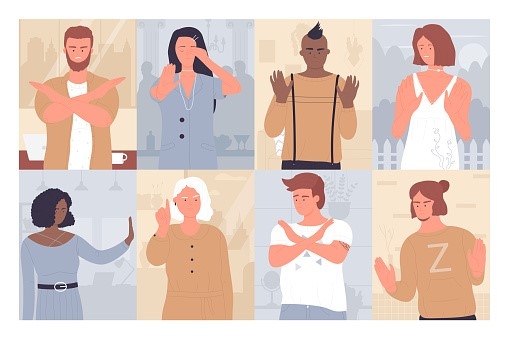You have /5 articles left.
Sign up for a free account or log in.

Flash Vector / Getty Images
Viet Nguyen has a plan.
A 2017 Brown University graduate, he's held a Fulbright fellowship in South Korea, worked in nonprofit consulting and spent some time in Vietnam, from which his family emigrated to the United States. Now he's enrolled in a joint M.B.A. from Harvard University and master's degree in public policy from Stanford University.
As he's moved among universities that are hard to get into, Nguyen has wondered about their admissions policies. But he's found outstanding professors and close friends along the way. But one thing has bothered him: the tradition of elite colleges and universities giving some preference to alumni children in admissions.
"It's inherently unjust," he said. "It's a process based solely on lineage."
Before he applied to Brown, he read about how the university favors alumni children and wondered "do I really belong there?"
So Nguyen came up with a plan. He would create Leave Your Legacy in which young alumni and students would pledge not to give anything to colleges "until they get rid of legacy admissions, a system designed to exacerbate inequity for higher education." So far, 578 people have signed up.
They also are asked to email their colleges, with this sample illustrating what to say: "Hi, my name is Jackson Alvarez (Class of '16), and I am an alum of USC. Legacy admissions is an unfair and unjust system that privileges those that are already privileged. I pledge not to donate to USC and to continue to recruit my classmates to do the same until you eliminate legacy admissions."
Nguyen acknowledged that not many young alumni or students donate gifts of the size that a development office would necessarily notice if a gift wasn't made. He has been a "recurring donor" to Brown between graduating and starting the boycott a few weeks ago. (He declined to say how much he gives.)
For the campaign to work, he said he needs a few things to happen. He needs more alumni and students to join. Nguyen believes that if enough donors join, even if they are small donors, colleges will notice and care.
And he hopes that some wealthier, big donors will join the campaign as well.
But ultimately, he said, the campaign is about justice.
Ronald J. Daniels, the president of Johns Hopkins University wrote in The Atlantic that "[w]hen I served as the dean of the Faculty of Law at the University of Toronto -- Canada's most selective law school -- I would be asked every so often by one of our alumni what preference their children would enjoy when applying. The answer I gave was always the same: none whatsoever. When I became president of Johns Hopkins University 10 years ago, I found that one in eight newly admitted students benefited from preferences given to relatives of alumni. Today, it's important that I'm able to give the same answer to Hopkins alumni that I once gave in Toronto."
Hopkins eliminated legacy preferences last year. Wrote Daniels: "Legacy preferences -- the admissions advantage given to family of alumni -- are generally alien to Canadian (and, indeed, European) universities. And I never became reconciled to the prevalence of this form of hereditary privilege in American higher education, particularly given this country's deeply ingrained commitment to the ideals of merit and equal opportunity."
Some Asian Americans note that while the beneficiaries of legacy preferences have been to date overwhelmingly white, with all the Asian admits at competitive colleges these days, that will change, and many Asian Americans stand to benefit.
Nguyen said, "I hear that a lot." It doesn't persuade him.
"Just because you can benefit from an unfair and unjust process doesn't make it fair," he said. And he also thinks the argument ignores key facts: "Legacy admits are overwhelmingly white and overwhelmingly wealthy."
He said now is the time to get behind the campaign. "The iron is hot." The Varsity Blues admissions scandal may not involve legacy admissions per se, but it shows that "the admissions game is rigged."
Is Brown Worried?
So is Brown worried about Nguyen's campaign?
Brian E. Clark, a spokesman for the university, said, "We often encounter the misperception that there is a tradeoff between admitting legacy students and those who are first-generation, low-income or come from other backgrounds historically underrepresented in higher education. At Brown, children of alumni are reviewed like all other aspirants -- one case at a time -- and admitting children of alumni does not affect access for first-generation and low-income students."
He offers a statistic to explain: Of the Brown class of 2025, 15 percent of students are first-generation, 48 percent are students of color, and 10 percent are children of Brown alumni.
Clark also pointed to an op-ed in The Brown Daily Herald by Logan Powell, the dean of admission.
"So why do we also pay attention to whether an applicant is a child of a Brown alum? Many of these students grew up immersed in the values of Brown," Powell wrote. "They are often mentors and guides to other students in navigating the university. We see them giving back through BrownConnect by mentoring and developing internship opportunities for Brown students. And yes, they also support Brown's priorities financially, though this is not the focus. All members of the campus and alumni community benefit from the unique attributes that children of Brown contribute."
'A Brilliant Maneuver'
While Brown professes not to be worried about the campaign, Richard D. Kahlenberg, a senior fellow at The Century Foundation, said it could work.
Kahlenberg's group actually published a book in 2010 saying that colleges don't gain that much financially by offering the legacy benefit.
But he said the campaign was "a brilliant maneuver to discredit the central justification of discrimination based on lineage," adding "I hope that the campaign succeeds."
Kahlenberg also said there may be another push coming on the preferences, if the Supreme Court decides to take the Harvard affirmative action case. "If the court outlaws the use of race in admissions, colleges will look for new ways to promote racial diversity indirectly," he said. "Legacy preferences -- which now tend to benefit wealthy and white applicants -- are likely to be one of the first things on the chopping block."








